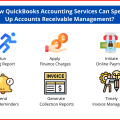How to Do Accounting for Your Real Estate Business

When it comes to keeping track of clients, listings, budgets, and expanding personal business networks, professional real estate agents have a lot on their plates.
Success is determined not just by one's ability to connect, sell, and close transactions, but also by one's capacity to keep up with administrative best practices. Real estate accounting fundamentals can make or break your success, even if they aren't the first thing that comes to mind for many agents.
Accounting in real estate provides the way for accurate reports and records throughout the purchasing and selling process. It also allows agents to safeguard their own personal financial problems and keep organized for critical tax collection and compliance duties.
The Goal of Real Estate Accounting
It's easy to get caught up in complexities when it comes to managing financial data. While it may be easy to create excuses or avoid time-consuming money management responsibilities, real estate professionals must prioritize strong accounting habits in order to preserve their expertise.
The primary purpose of real estate accounting is to keep a realistic, up-to-date picture of how your firm is doing at any given time, so you can make more financially sensible decisions for development and success.
While this does not necessitate a thorough understanding of all aspects of financial management, it does necessitate a desire to learn, adapt, and keep on top of critical accounting chores.
Real Estate Accounting Basics—What to Track
Whether you sell modest properties as a hobby or enable property management services that make millions of dollars, having a good accounting foundation is important. Despite the fact that each one is on a different scale, the fundamental tendencies are the same.
Income from Commissions
Real estate agents make money from property sales and commissions on each concluded transaction. Real estate professionals must carefully track, monitor, and record all incoming streams of revenue from these sources because they are the principal source of income.
Rather than using separate commission trackers, keep track of these statistics in your accounting system of choice to make things easy.
Association Fees and Expenses
Real estate agents may be compelled to share a percentage of their commission with a brokerage or business, depending on their employment status. This sum is regarded as an outlay. Furthermore, real estate agents frequently pay membership dues to associations and other national organizations, which may be deducted.
Continuing Education Costs
Renewals and continuing education seminars are required to keep a real estate license current. Consider these charges and check with your accountant to see if they can be included in your overall costs for the year.
Office-related Charges
Your job requirements may necessitate the usage of common office supplies, equipment, and other administrative tools, notwithstanding their simplicity. Rentals of office space, event space, and ongoing services like cleaning and maintenance are all examples of larger expenses. These expenditures may be negligible as more real estate professionals operate in a mobile manner.
Marketing Expenses
Marketing and advertising are methods of informing the public about the services you provide. Website design and development, social media management, online and digital advertising, and so on are examples of these costs.
Accounting Best Practives for Real Estate Agents
Conduct a Monthly Review
Much of the behind-the-scenes labor will be automated if you utilize an official accounting system. This is a tremendous time and convenience saver, but you should keep an eye on your accounts and make periodic checks on them.
If you work with a financial manager, the same thing applies. Schedule a monthly meeting to go over your cash inflows and outflows. This regularity helps you to pivot and hunt out problems in your accounts without enormous time lags if the figures are off track.
Use Accurate Reporting Procedures
Reliable reporting necessitates accurate data, which supports the concept of a monthly review. You can get reports for your business accounts once you know your financial data is proper.
Manual accounting procedures limit the kind of reports you can generate with a single click of a button, but automated software allows you to quickly pull, analyze, and categorize data.
Separate Personal and Business Funds
Although commissions and other streams of income are officially yours as a real estate agent, putting them all in one bank account can be inconvenient.
It's a good idea to open a separate company account to keep track of all your transactions. You can then connect to your own account or plan financial transfers between accounts.
It's also easier to connect your business checking and savings accounts to your accounting software or platform when they're separate. This can save you and your accountant time by eliminating an extra step or manual task.
Itemize All Incoming and Outgoing Transactions
Knowing how to categorize your financial accounts properly can save you time and work during tax season, as well as reduce stress. You'll be able to finish this stage with easily once you've developed patterns and a decent itemization practice.
Other articles and publications:
Articles and publications of other companies:
- +1 (646) 270-9836
- Long Island City
- grantny.com












